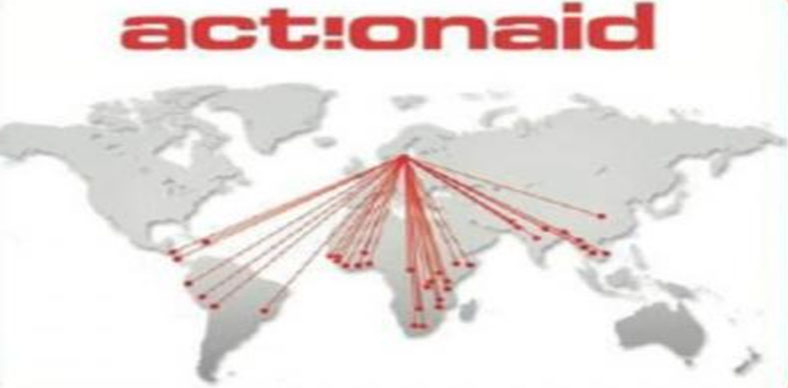
Country Director, Action Aid Nigeria, Ms Ene Obi, speaks with GIFT HABIB on the economic downturn in Nigeria and the way forward
What is your view on the Nigerian Governors Forum’s recommendation of 50 years retirement age for civil servants?
It is ridiculous. How do you retire someone at the age of 50 after all the qualifications, capacity building and wealth of experience? The politicians are suggesting things they cannot do. When one is asked to retire, what you are telling the person is that the person is overqualified or the person is no longer needed to render services. However, age 50 is a working age that should be respected. Can politicians retire or stop contesting as governors at the age of 50? At 50, would they have gotten N100m to buy nomination forms? Are we saying that if civil servants retire at the age of 50, they should venture into politics? Even the President, if he had retired at the age of 50, would he be a President today? We need to look at so many things such as what people are feeling. I have heard many government people advising youths not to think of white-collar jobs but to look for something else to do. But have the politicians gone to look for what to do themselves?
Could this be a solution to the financial crisis facing the country?
Take a look at the kind of people that have stolen a lot of money, are they not beyond 50 years? People are being tried for stealing billions and the government is talking about resolving the issue of the financial crisis by retiring the human resources and manpower of the country. What does that spell out about those managing the human resources of this country? It shows a flaw in their thinking level. I will link the financial crisis to the huge and unmitigated corruption that is on board. This administration promised to fight corruption but today, we are looking at corruption in the eye and till now, a lot of people have not been arrested. There was a publication by HEDA in 2021 which showed 100 profile cases of corrupt officers but no trial is ongoing. We are hearing of people being tried for millions, trillions of dollars in several places, especially in the Senate and House of Representatives but these people are still in their seats. It shows that there is no financial prudence in the country. There are so many agencies that are not rendering accounts but these offices keep getting money despite not being accountable.
Would you say that the Federal Government has done well, especially in the area of security?
The Federal Government is not doing enough in the area of security. However, state governments are also to blame. Every governor is getting a security vote but what are they doing with it? They are still crying that the Federal Government should come and help them. They are not paying salaries at the state level. Some people are being owed 15 months’ salaries and the governors are busy buying bullet-proof vehicles for themselves. They are paying lip service to insecurity. I agree that we have qualified men and women in the Nigeria Police Force, military, and Navy trying their possible best to fight insecurity but they do not have the resources and enough equipment to curb this menace. In this technology age, the government has still not successfully located the hideouts of kidnappers, bandits and terrorists. The politicisation of security is so unfortunate because everyone will be affected. How can the President, Major General Muhammadu Buhari (retd.), be attacked in his hometown? Does that speak well for this country? The government is not allowing security chiefs to take charge of the situation. They are just paying lip service.
ASUU strike is still unresolved; do you think that the government is sincere and ready to address this issue?
I am pained by the millions of young Nigerians who are still at home because of the strike. I am also pained that the Federal Government is not honouring the signed agreements. It is a disaster for this country because education is the country’s greatest investment that leads to the building of human capital for the economy of the country. As good managers, if one does not focus on such investment, it means one is not planning for the future of the country. So, the amount invested in this sector should be reviewed constantly. But when you look at the body language of the government, it is as if they are doing the students a favour. If you look at the population of Nigerians trying to get admissions, and scholarships to public universities, it is disheartening. Nigeria is a country where you pay full tax and get no benefits compared to other countries where your health issues and children’s education are taken care of. One will want to ask about the benefit of the Nigerian government to the people.
The country is in a mess with inflation at its highest level, how did we get to this stage?
Yes, the economy is a mess. When you keep fiddling with the prices of petrol and gas, it leads to inflation in terms of transportation fares, which increases the prices of commodities across the board. This is a country with four huge refineries. We are producing oil but not refining oil. It is unheard of in other countries. In countries that are importing and not producing fuel, there is petrol in their stations everywhere. Imagine the logistics of moving crude outside Nigeria to go and refine. Does this mean that the government is incapable of maintaining a refinery? If these refineries are working, it will bring down the prices of fuel. The redistribution of wealth is recognised when one can utilise the wealth for the common good of the people because the economy is about the welfare and security of the people. The government should score itself at the level.
There have been so many talks about diversification; don’t you think it is time the government looked away from crude oil?
Agriculture used to be the mainstay of our economy. Nigerians need to focus on agriculture. We are capable of producing food to feed ourselves and as well export to other countries. However, due to the lack of transparency and accountability, the government prefers to focus on irrelevant areas that are not boosting the economy. The government can invest in technology and ICT, among others. It is a failure of governance if the government is not able to revamp the refineries. The government should not be telling Nigerians that it is subsidising the petrol price. It shows that the government is benefitting a few and leaving a large number of people to suffer. The high cost of governance needs to be reduced. How can Nigeria have federal legislators that earn more than those of the richest countries in the world? Look at the ASUU crisis; imagine the salaries of professors in Nigerian universities versus that of the federal legislators. Federal lawmakers earn over N20m a month and the lecturers, who are training the leaders of tomorrow, earn very little as salaries. So, we can diversify because Nigeria is blessed with so many natural resources. Nigerians are most qualified in all fields. Many countries come to Nigeria to recruit because Nigerians have the capacity and are very hard-working.
What should the government do to address the economic crisis in the country?
I think the government knows what to do but they are not just doing it. They need to be transparent, have an open budget process, and be accountable. Look at the non-governmental organisation sector; every year, we audit and it is made available to the government as demanded. Government audits should be made public. Can government agencies publish what they have spent? So, we need to be serious. The sense of patriotism is a big one. We took an oath to defend and uphold Nigeria. Are we keeping to the oath? The lip service we are paying will hurt us all someday. In the forthcoming 2023 general elections, Nigerians should vote for people who will deliver, and not people who have looted public funds. Nigerians can go to the next level. We need to look at multiple ways to boost the economy. Agriculture is booming; the Ministry of Agriculture is doing a lot. They need to be supported. So many ministries and departments need to unite to provide support for small-scale businesses, especially farmers.




